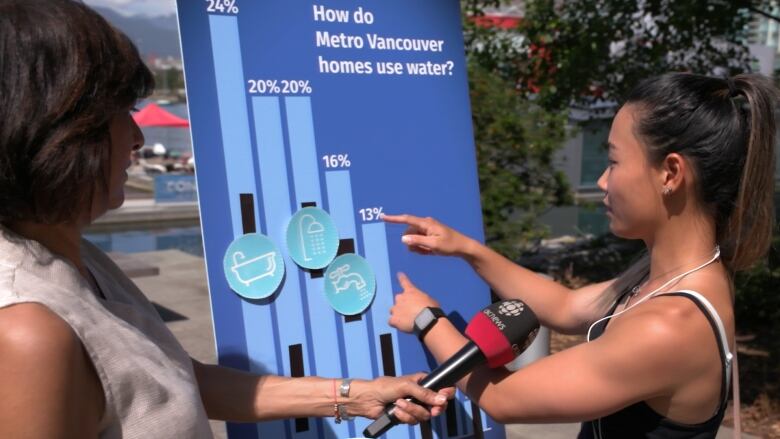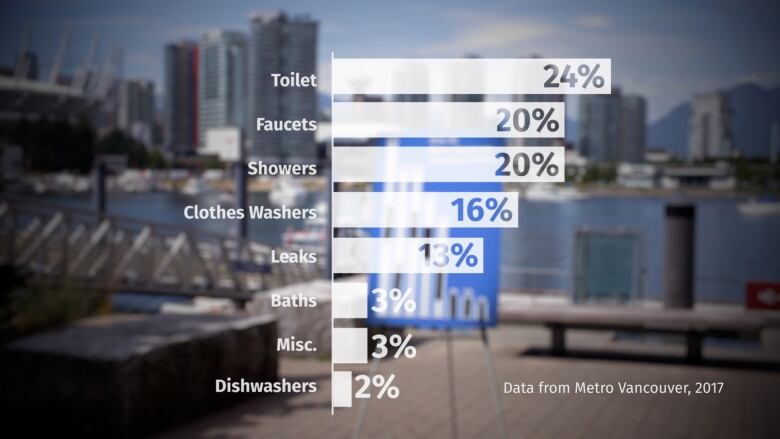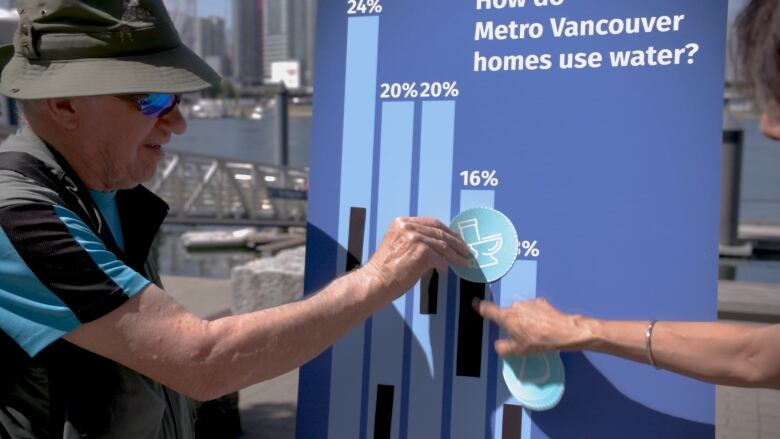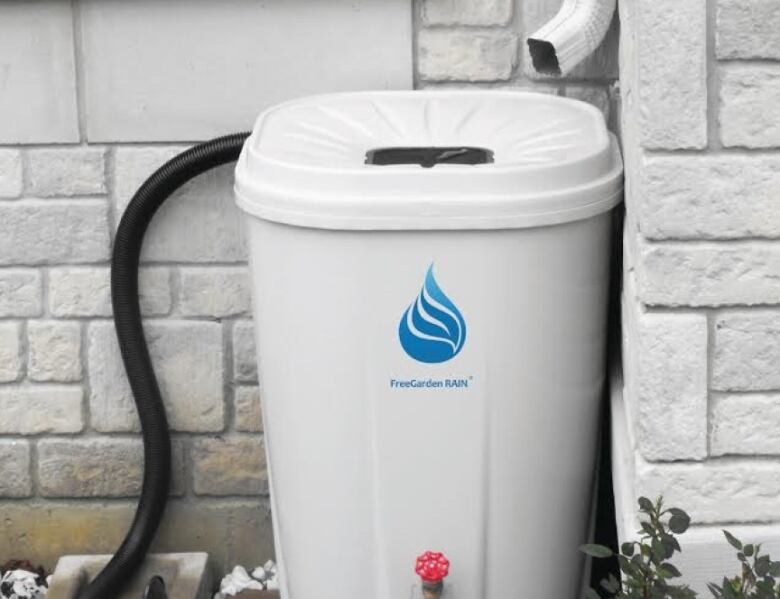Water, water everywhere, but mostly down the drain: How Vancouver is trying to plug excessive water use
We asked people what they think is the thirstiest water user in their homes

Water in Metro Vancouver might seem like a limitless resource, but it's time for that notion to go down the drain.
When it comes to home water use for drinking, bathing, toilet flushing and more Metro Vancouver is a pretty thirsty place.
Residential water use in Metro Vancouveris 270 litres per capita per day. That'sless than the City of Montreal's 286 litres per capita per day, but more than Toronto's 219 per day or the 210 per day used by residents of Calgary.
So how do the thirsty residents of Metro Vancouver use all that wet stuff?
The answers were a surprise to many folks walking along False Creek on a hot Thursday afternoon as they tried to guess how they use water.
Watch as people try to guess what the biggest water hogs at home are:
According to data from Metro Vancouver, toilets are the No. 1 water user in people's homes.
"We're not going to flush anymore," joked Arlene Chaumalk, 42.
Many of the people CBC News spoke to thought they could do more to reduce their water use, like take shorter showers and fix leaksaround the house.
Officials in the regionare also looking at ways to cut down on that insatiable thirst.

Water meters for every home
The plants outside Vancouver City Hall were looking green and lush last week but that might not be the case for long.
Lawn and gardenwatering restrictions have been in place since May 1 and the city's director of water and sewers, Daniel Roberge, said cutting back on watering lawns and gardens is an important way to cut back on drinking water use.
"The demand just doubles in the summer," Roberge explained, adding that trend is true for much of the region. "We ... ask residents to let their grass go gold. It's a natural state of the grass."
In addition to watering restrictions, Roberge said the city's goal is to get a water meterinto every home and switch from the flat rate most people payto having users pay for the water they use.
"It's a more equitable way of paying for water," he said.
He said the city still has 75,000 homes without meters and it will likely be several years before every residence has one.

Such a switch is concerning to some poverty activists, however.
Tabitha Naismith, of B.C. ACORN, said she doesn't want to see the meters lead to higher water costs for poor families.
"Why add another bill if people have a hard time living as it is?" Naismith asked. "You shouldn't be afraid to use water for everyday things like ... showers, cooking."
Got greywater?
Conserving water could take on increased importance as climate change threatens the stability of Metro Vancouver's water supply.
That has authorities looking at creative sources of water for the future.
One idea is increasing the number of buildings with rainwater collection barrels. Another is increasing the use of greywater systems in buildings.

Greywater is relatively clean water from sinks or washing machines that be used in place of treated potable water for flushing toilets, for instance.
Metro Vancouver posted a request for bids online at the end of May to develop a guidebook to help residents and builders add barrels and greywater systems.
A spokesperson said adding these features to buildings could reduce the amount of treated water the growing Metro Vancouver region slurps up every day.
With files from Belle Puri













_(720p).jpg)


 OFFICIAL HD MUSIC VIDEO.jpg)
.jpg)



























































































